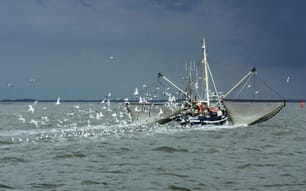Acknowledging the disparity in discourse, Stephen Hall, WorldFish Director General, has added new insights to the discussion by highlighting innovations in capture fisheries as an imperative for nutrition security in the developing world.
Published in an opinion-editorial on Devex, Stephen asserts that good fisheries policies help the poor, and without sufficient backing, their wellbeing, livelihoods and valued inputs may be lost. Making recommendations for fisheries policies for a new era, he outlines four guiding principles in a recent policy brief.
Underlining his challenge to the global fisheries community, Stephen states that fish are more than just another commodity that must be considered in the wider context of resource sustainability and environmental impacts, as well as for food and nutrition security and well-being of the people in developing countries.


